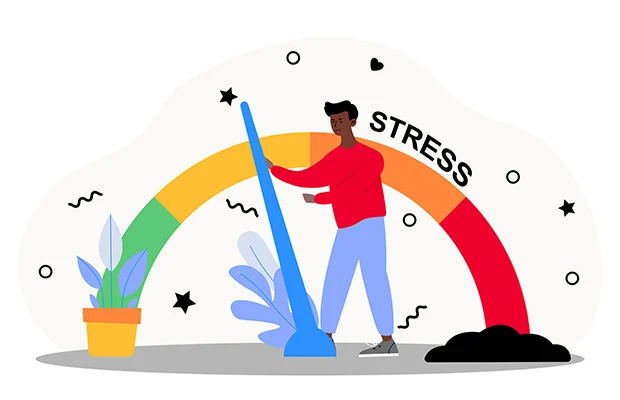What Stress Really Does to Your Body – And How to Calm It

Why Do We Feel So Stressed All the Time?
You know the feeling: your heart races, your jaw tightens, your mind won’t stop spinning. Whether it’s work, relationships, or the daily pressures of life, your body reacts—sometimes faster than your mind can keep up.
This is more than just “feeling anxious.” It’s your nervous system doing its job: trying to keep you safe. But when this system is always on high alert, it can leave you feeling overwhelmed, burnt out, or emotionally numb.
In this post, we explore how stress affects the body and mind—and how understanding your nervous system (through the Polyvagal Theory) can help you find your way back to calm.
Your Nervous System’s Job: Keep You Alive
The nervous system has one goal: survival. It constantly scans your environment (consciously and unconsciously) for danger or safety—a process called neuroception.
When it senses safety, your body stays in a regulated state.
When it senses danger—real or imagined—it shifts into protection mode.
This is the foundation of Polyvagal Theory, developed by neuroscientist Dr. Stephen Porges. It helps explain why we react to stress the way we do—and why it can be so hard to “just relax.”
🚦 The Three Main States of the Nervous System
Let’s break this down simply:
✅ 1. Regulated State (Safe and Social)
-
You feel grounded, calm, and connected
-
Breathing is steady, digestion works well
-
You can focus, listen, and respond thoughtfully
-
This is called ventral vagal activation
⚠️ 2. Fight or Flight Response (Mobilization)
-
Triggered by perceived danger or stress
-
Heart rate increases, muscles tense, breathing gets shallow
-
You may feel anxious, angry, restless, or panicked
-
This is your sympathetic nervous system in action
☢️ 3. Freeze or Fawn (Shutdown or Appeasement)
-
When danger feels inescapable, the body may shut down
-
You feel numb, disconnected, tired, or emotionally flat
-
Or you may shift into fawning—people-pleasing to stay safe
-
These are dorsal vagal or survival-based responses
These responses are not weaknesses. They are your body’s intelligent way of surviving what it perceives as threat—even when the threat is just emotional stress or overwhelm.
🔗 Learn more about Polyvagal Theory (Polyvagal Institute)
What Chronic Stress Does to Your Body
If your nervous system stays stuck in stress mode, it can affect your physical and mental health:
-
Anxiety and persistent worry
-
Insomnia or restless sleep
-
Digestive issues (gut-brain connection is real!)
-
Fatigue or burnout
-
Muscle tension, especially in neck, shoulders, and jaw
-
Emotional numbing, zoning out, or feeling foggy
Over time, stress dysregulates your entire system. The good news? You can re-regulate it.
How to Return to Calm: 5 Simple Tools for Regulation
Here are evidence-based, body-first ways to support your nervous system:
1. Slow, Intentional Breathing
Long exhalations activate the parasympathetic system. Try box breathing:
Inhale 4 • Hold 4 • Exhale 4 • Hold 4
🔗 Try the Breathwrk App for guided exercises.
2. Grounding Through the 5-4-3-2-1 Method
Name 5 things you see, 4 you can touch, 3 you hear, 2 you smell, and 1 you taste.
It pulls you out of your head and into the present moment.
3. Move Your Body Gently
Walking, stretching, dancing—even shaking—can release built-up stress.
🔗 Research shows movement reduces cortisol levels.
4. Spend Time in Nature
Being outside (even briefly) can calm the nervous system.
🔗 Nature therapy is increasingly supported by science.
5. Talk to Someone You Trust
Connection is medicine. A warm, attuned person can help regulate your system through co-regulation.
Helpful Resources for Further Learning
-
Polyvagal Institute – Learn more about the science
-
The Body Keeps the Score – Book on trauma and the nervous system
-
NICABM – Clinical resources on nervous system health
-
Insight Timer – Free meditations and nervous system tools
You Don’t Have to Do This Alone
At Cogniva Counselling, we offer trauma-informed, science-backed therapy to help you understand your nervous system and heal from stress, anxiety, or burnout—from the inside out.
Whether you’re navigating daily overwhelm or recovering from deeper trauma, therapy can help you come home to yourself.
📍 We offer sessions in Fourways, Johannesburg, and secure online therapy across South Africa.
START TODAY, BOOK A SESSION
